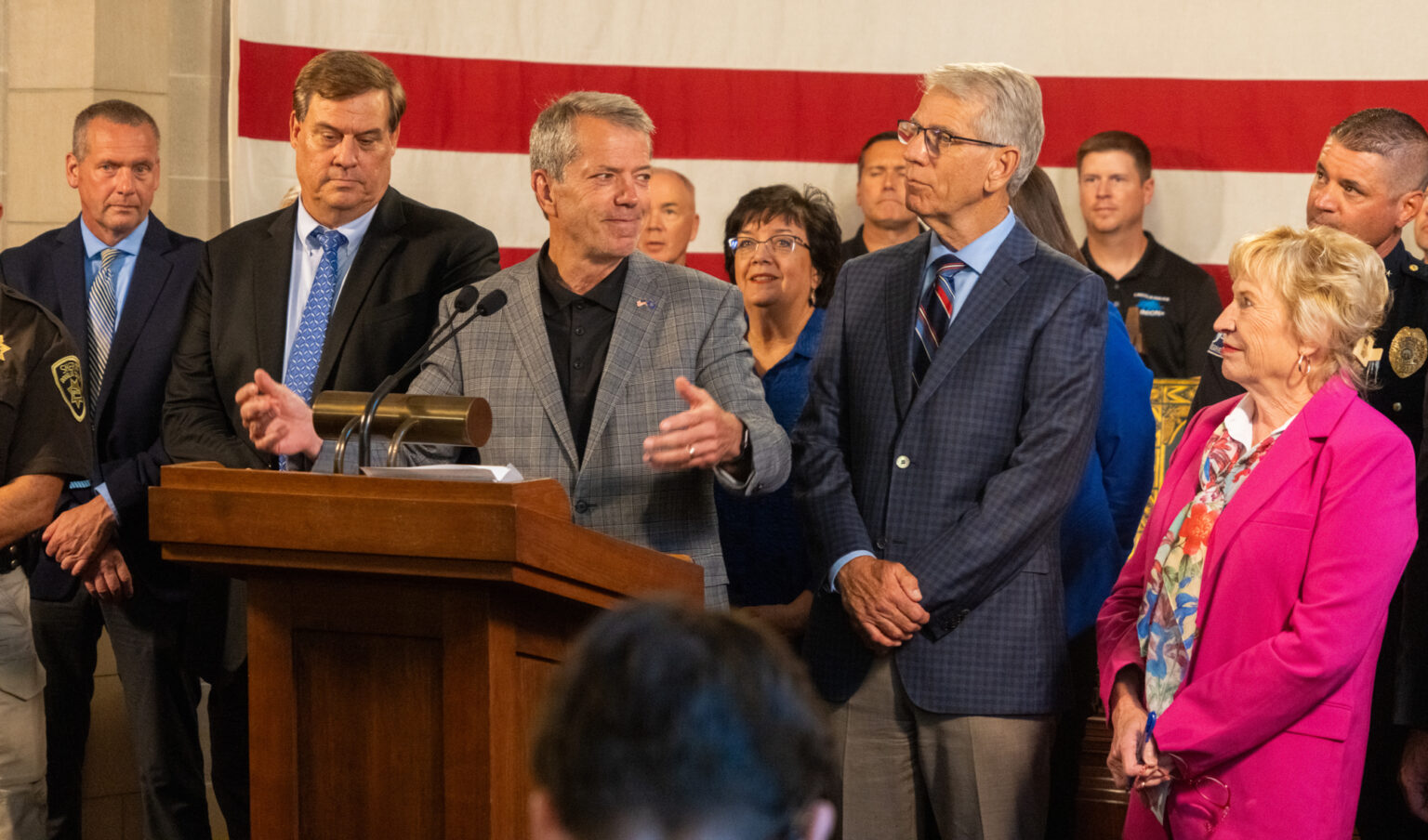Nebraska Governor Jim Pillen made a significant policy shift Monday, abandoning his own property tax relief proposal in favor of a newly emerging legislative plan. This change marks a pivotal moment in the ongoing debate over property tax reform in Nebraska.

Overview of the New Plan
Governor Pillen’s pivot comes as State Senator Lou Ann Linehan of Omaha and the Revenue Committee she chairs have developed a comprehensive plan to address property tax relief. The new proposal, which will be detailed in Legislative Bill 9 (LB 9), aims to address an estimated $1.8 billion in school-related property tax revenue. This plan will replace Pillen’s original proposal, LB 1, introduced earlier this year.
Key Components of the New Plan
Tax Adjustments
Similar to Pillen’s proposal, LB 9 will include an expansion of the state sales tax base. Over 70 goods and services will now be subject to sales tax, including personal services like lawn care and swimming pool maintenance. The new plan will also introduce higher taxes on alcohol and will start taxing candy, gambling, and soft drinks, though it will be less aggressive than Pillen’s original plan.
However, LB 9 diverges significantly from Pillen’s proposal in several areas:
- Exemptions: The new plan will not tax home and auto repairs, legal services, or accounting services—items Pillen’s plan aimed to tax.
- Advertising and Cloud Services: Unlike Pillen’s proposal, LB 9 will not include a tax on advertising or cloud/data services.
- Agricultural Equipment: Instead of taxing all machinery and equipment, LB 9 will impose a 2% sales tax on new agricultural and manufacturing machinery, replacing the personal property tax on these items.
Local Government Funding
The revised plan will also address funding for local government services differently:
- Natural Resources Districts: Similar to recent changes with community colleges, LB 9 will use state funds to cover costs for the state’s 23 natural resources districts, removing them from the property tax rolls.
- County Jails: The state will assume $181 million in funding for county jails, addressing concerns from local law enforcement about financial support.
- Homestead Exemption: The plan will protect the homestead exemption, potentially costing less than the current program due to increased state education funding.
Response to Local Law Enforcement Concerns
The change in approach addresses feedback from various local officials. Initially, Pillen’s proposal included caps on local government property tax collections, which many local law enforcement agencies and fire departments found restrictive. The new plan eliminates these caps on public safety spending, ensuring that local agencies have the flexibility to manage personnel, equipment, and training needs without state-imposed limits.
Kearney Police Chief Bryan Waugh, Lancaster County Attorney Pat Condon, and Douglas County Sheriff Aaron Hanson were among those who supported the revised plan, arguing it provides necessary flexibility for public safety spending.
Political Implications
Pillen’s shift reflects his broader strategy to address Nebraska’s property tax issues and secure legislative support. He has faced opposition from both sides of the political spectrum: Democrats are concerned about impacts on local governments and schools, while Republicans are wary of increasing sales taxes.
Pillen has previously advocated for a higher sales tax rate and a broader sales tax base as a means to reduce property taxes, referencing research suggesting that states with higher sales taxes and lower property taxes experience faster growth.
Legislative Process and Future Steps
The next steps involve the Revenue Committee combining various property tax relief bills into LB 9. This bill will be adjusted to reflect feedback from numerous public hearings and is expected to advance through the legislative process. The committee plans to address the school levy cap more quickly than initially proposed, with significant relief expected in the first year of implementation.
Senator Linehan and her colleagues believe that the new plan, though not without its critics, represents a balanced approach to property tax relief. However, not all stakeholders are pleased with the direction. Senator Danielle Conrad, a co-author of LB 9, criticized what she sees as procedural manipulations to pass the new plan and has voiced concerns over potential tax increases.
Conclusion
Governor Pillen’s shift from his original property tax relief plan to the emerging LB 9 represents a major policy change aimed at addressing Nebraska’s property tax concerns. The new plan, while preserving some elements of Pillen’s proposal, incorporates feedback from local officials and adjusts tax policies to better address public safety and local funding needs. The success of this approach will depend on continued legislative support and the effective implementation of the new tax and funding strategies.